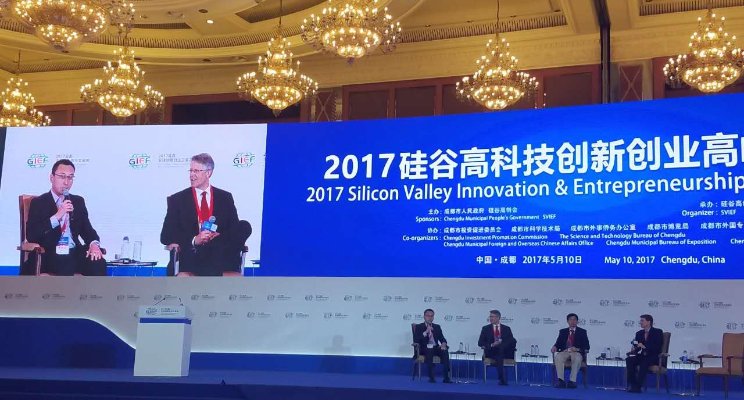Trump’s Impact on Global Mergers and Acquisitions
By Global PMI Partners, November 19th, 2016
Recent Steve Bannon Interview Sheds Light on Policy
As an observer from the business world, I look at President-elect Trump’s advisors and cabinet to determine impact on my work as an M&A integration consultant. Policy details have been sparse, but a recent exclusive interview with Trump’s chief strategist Steve Bannon by the The Hollywood Reporter’s Michael Wolff sheds light on priorities of the administration. Move over Wall Street Journal… It is now The Hollywood Reporter’s turn.
Not a Good Election for Global Virtual Value Chains
We don’t have to look further than our iPhone to read “Designed by Apple in California Assembled in China” to see how we are impacted by a global value chain. Mr. Bannon’s comments in The Hollywood Reporter go to the heart of this issue. He sees people not benefitting from outsourced business, except in terms of cheaper products, keeping Trump in office:
“The globalists gutted the American working class and created a middle class in Asia. The issue now is about Americans looking to not get f—ed over. If we deliver” — by “we” he means the Trump White House — “we’ll get 60 percent of the white vote, and 40 percent of the black and Hispanic vote and we’ll govern for 50 years. That’s what the Democrats missed. They were talking to these people with companies with a $9 billion market cap employing nine people. It’s not reality. They lost sight of what the world is about.”
The Trump administration’s focus on limiting globalization through potential trade tariffs and taxation policy will result in a number of new considerations for any company completing cross-border business. Over 2017, we will assess policy to see if international companies divest from the United States and move to countries that have a more favorable view of lowering barriers to business. On the opposing side, with reduced tax on repatriated funds and business income, we’ll see if companies create greater US investment and domestic M&A. These uncertainties (and the potential for trade wars) in the near term will likely suppress M&A activity until policy is solidified.
New Nationalism and Cultural Sensitivity
In Beijing this past January, which now feels decades away, I spoke at our Global M&A Summit where I emphasized that companies will be more successful at acquiring abroad if they are seen as global organizations, versus as a national organization identified by their headquarters. It is much more palatable for a US company to be acquired by a “global” company than by a Chinese firm for instance. Companies that have succeeded in this include Lenovo and Alibaba.
Global M&A Summit held by Global PMI Partners in Beijing, January 15th, 2016
As President-elect Trump takes office, nationalism will be at the forefront. There is no getting around that companies will be seen as being from a specific country. As Mr. Bannon comments while disavowing racism:
“I’m not a white nationalist, I’m a nationalist. I’m an economic nationalist,” Bannon tells THR media columnist Michael Wolff
With the Trump administration’s focus on nationalism, international companies will be more apt to take pause prior to moving forward with a cross-border acquisition into the United States as they will be seen as coming from a competing nation. With my work on integration tasks during an acquisition, increased emphasis will need to occur to address national labels that will now be more evident in a multicultural workforce.
Federal Government Spending and Higher Interest Rates
As policy develops, increased deficit spending championed by the Trump administration may cause greater Federal Reserve rate hikes as Chair Janet Yellen looks to suppress inflation. As Mr. Bannon mentions:
“Like (Andrew) Jackson’s populism, we’re going to build an entirely new political movement,” he said. “It’s everything related to jobs. The conservatives are going to go crazy. I’m the guy pushing a trillion-dollar infrastructure plan. With negative interest rates throughout the world, it’s the greatest opportunity to rebuild everything. Shipyards, iron works, get them all jacked up. We’re just going to throw it up against the wall and see if it sticks. It will be as exciting as the 1930s, greater than the Reagan revolution — conservatives, plus populists, in an economic nationalist movement.”
M&A activity will likely increase in the construction industry. Other industries will be impacted by higher interest rates, likely causing a dampening effect on their merger and acquisition pipeline.
In Summary
As the stock market stabilized and went up after the November 8th election, sentiment is that the Trump administration will be business friendly, although there will be many bumps ahead, especially related to global business. In the short term, global M&A transactions related to the United States are likely to be suppressed from the uncertainty injected by the new administration and the position by Mr. Bannon to look inwardly for success versus win-win collaboration across borders.
What are your thoughts on Trump’s impact on global mergers and acquisitions? Comment and “Like” this post on LinkedIn by clicking here.













